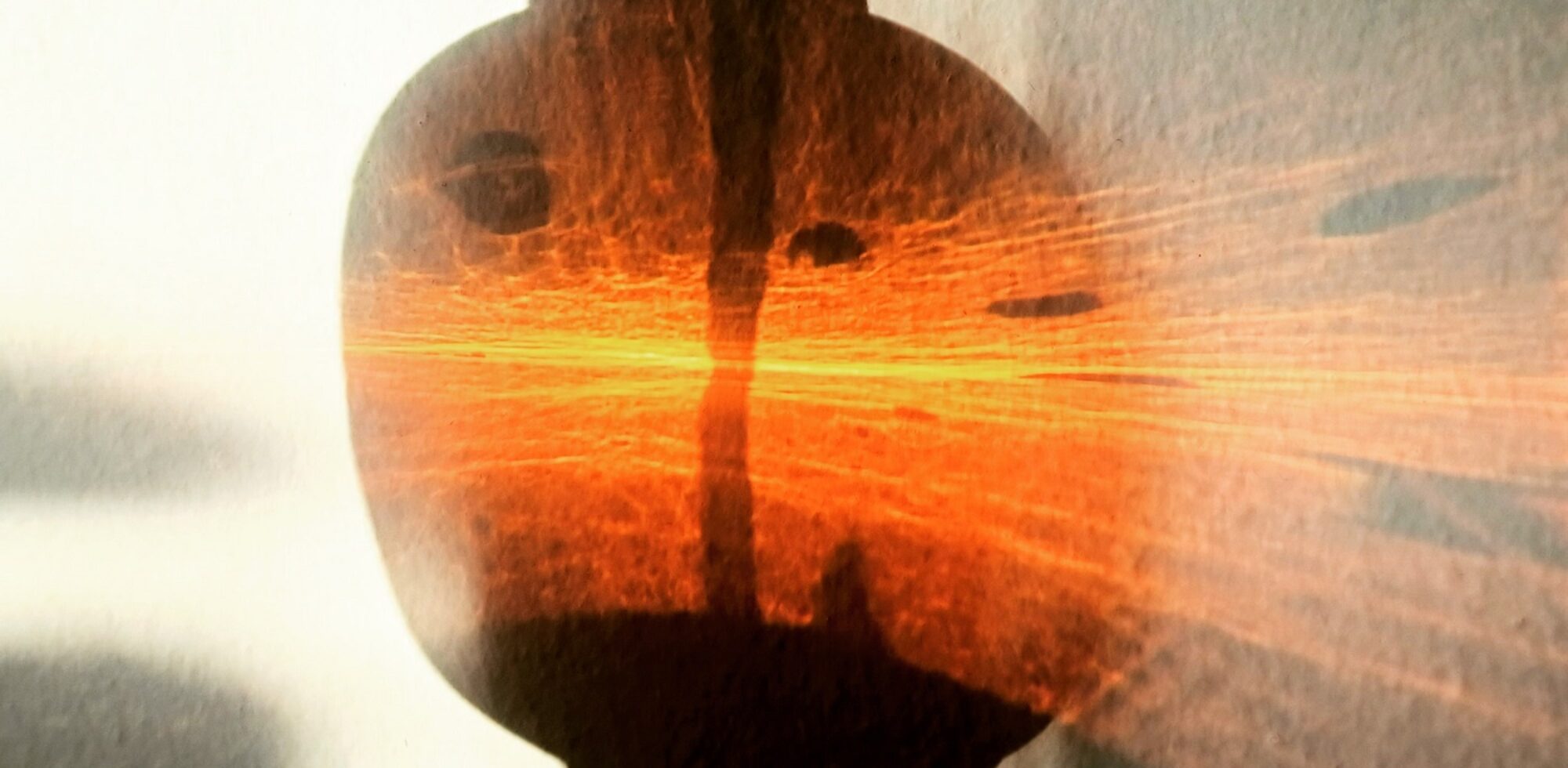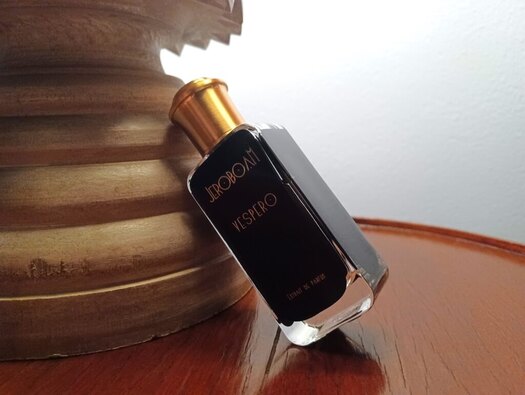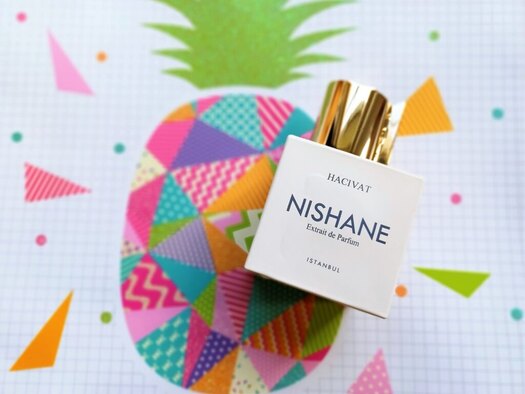What started out as a trickle has become a veritable flood. I’m talking about the extrait de parfum deluge on the market, big designer and niche brands alike.
As designer becomes more niche and niche becomes more designer (it’s so confusing), this highest fragrance concentration (also called perfume, pure perfume and parfum) is becoming the all-important way to exalt quality.
I knew already that the extrait de parfum is de rigueur but it was confirmed recently when Thibaud Crivelli, founder of Maison Crivelli, told me: “The extraits make up 80% of our sales, so it shows that we’ve found this connection – it is something that people are looking for. It also explains why, moving forward, we are only launching extraits.”
If you know your fragrance history, you’ll know there’s nothing new about extraits, per se. Many of the classics (Chanel No 5, Guerlain Mitsouko, Caron Tabac Blond, etc) were originally released in this concentration decades ago and revered by those who’ve had the good fortune to smell vintage versions of them.
Taking their cue from these grandes dames, many niche brands only do the extrait de parfum thing and those that haven’t realise they’d better do so quick-quick if they’re to maintain their air of exclusivity.
If an eau fraiche (anything from 1% – 3%) and eau de cologne (2% – 4%) are the lowest fragrance concentrations according to the amount of oils, then an extrait de parfum is the highest (20% to 30% upwards), but even here there is lots of variation, depending on which online guide you consult.
To add to the confusion, just because it says “le parfum” on the box doesn’t mean it’s a parfum. The same goes for “elixirs”. The name implies something rich and concentrated but doesn’t automatically mean it’s an extrait de parfum. Best advice: read those boxes carefully.
Another area of contention: performance (and probably the worst way to judge the quality of a fragrance). Just because it’s an extrait de parfum doesn’t mean it’s going to last forever and let everyone know how fabulous you are. Who hasn’t tried to scrub off an EDT they didn’t like but which remained with them for the rest of the day?
So now that I’ve clarified matters as much as I can, let’s get to a selection of some of my favourite extraits.
HERMÈS TERRE D’HERMÈS PARFUM (JEAN-CLAUDE ELLENA)
There are fragrances and then there are modern classics. Sometimes I’m guilty of over-using this term. But if I’m strict in its application, Hermès Terre d’Hermès would surely deserve this accolade. Both in terms of its innovation and influence.
The original from 2006 has Jean-Claude Ellena’s minimalist, but bold style all over it. Nothing is gratuitous in this most elegant of scents that blends the sunny bitterness of grapefruit, subtle earthiness of cedar and mineraline qualities of flint to balanced perfection.
For the 2009 parfum version, also created by Jean-Claude Ellena, there’s no doubt this is still TDH (when a scent is so dear to me, I allow myself such abbreviations).
The citric opening has been heightened and shiso accentuates the freshness with its sharp spiciness. The flint note evolves into an almost burnt treatment of oakmoss, woody and benzoin notes. Although this first flanker is not as well known as its illustrious predecessor, I think it’s very special indeed.
Other top parfum options to check out from the French luxury goods brand: Hermès Voyage d’Hermès Parfum (2012) and Hermès Galop d’Hermès Parfum (2016).
JEROBOAM VESPERO EXTRAIT DE PARFUM* (VANINA MURACCIOLE)
In a world of hype and over-exposure, this Paris-based niche brand doesn’t get the attention it should. Let’s do something about that, shall we?
It was founded by François Hénin, the man behind the Jovoy niche fragrance boutiques in cities such as Paris, London and Doha. So clearly the entrepreneur knows quality when he sees / smells it and that same high standard applies to his own perfume company.
A 2017 release, Vespero starts out fresh and fruity with notes of apple, pink grapefruit and bergamot. When those dissipate, there’s an animalic leather vibe with hints of floralcy from geranium and jasmine. François Hénin loves his musks and perfumer Vanina Muracciole interprets that in the most seductive way in the drydown where an amber accord is intertwined with earthy patchouli.
NISHANE HACIVAT EXTRAIT DE PARFUM* (JORGE LEE)
Thanks to the huge popularity of Creed Aventus, any fragrance with a pineapple note is inevitably compared to that best-seller. So let’s state categorically: Aventus doesn’t own pineapple and this 2017 release from the Turkish niche brand’s Shadow Play Collection should be judged on its own merits.
Now that I’ve got that out of the way, there’s juicy pineapple galore in the opening. Citrus notes of bergamot and grapefruit ensure it’s not too icky-sticky sweet. Fresh jasmine continues the fruity tropical vibe of the intro, with patchouli and its biotech equivalent Clearwood bringing clean depth. The bitter oakmoss in the drydown makes a pleasing contrast to the sugary aspect.
CHANEL BLEU DE CHANEL PARFUM (OLIVIER POLGE)
Both the EDT (2010) and EDP (2014) versions of Bleu de Chanel (created by Jacques Polge) are defined by their refined take on citrus and cedar notes, among others. While they have different emphases, they are not radically different fragrances. Bleu de Chanel Parfum is not a reinvention of the modern aromatic-woody classic, but it certainly offers a new dimension.
Featuring notes of lemon zest, bergamot and mint, the opening pulls you in immediately with its crisp spiciness. It’s dangerously addictive, so don’t be surprised if you find yourself doing more re-sprays than usual. Notes of lavender and geranium build on the freshness of the intro with their aromatic greenery.
The drydown of sandalwood (sustainably sourced from New Caledonia) elevates this fragrance above its EDT and EDP predecessors. Smooth and creamy, it’s a grown-up, big boy treatment of the precious wood. Cedar enhances the woody character of the fragrance, while the synthetic Iso E Super gives it velvety muskiness.
Bleu de Chanel Parfum is polished perfection. It’s been another best-seller for Chanel. And justifiably so. Some people have accused it of being “boring”, “safe” and “predictable”. I disagree. It’s Chanel at its classic and classy best.
Want something a bit more exclusive from Chanel? You can’t go wrong with Chanel Coromandel Parfum (2019) and Chanel Sycomore Parfum (2022), both from the quality-assured Les Exclusifs de Chanel range.
ORTO PARISI CUOIUM PARFUM* (ALESSANDRO GUALTIERI)
LEATHER! The bottle wrapping for this 2021 release from the Amsterdam-based niche brand (apparently a reusable vegetable leather) announces its intentions from the start with its brooding animalic potency. Perfumer Alessandro Gualtieri always makes a big statement with his creations.
I reckon there’s a large dose of isoButyl quinoline (the ingredient used to produce leathery earthiness) assisted by the spiciness of black pepper and the smokiness of incense and cade wood oil at work here.
That might intimidate you if you’re more used to smoother, more commercial takes on the genre. It’s given delicate sweetness with notes of orange, violet and vanilla. The drydown maintains the deep and dark mood with labdanum and patchouli.
It’s unequivocally bold and will reward those with more adventurous tastes.
CARON POUR UN HOMME DE CARON PARFUM* (JEAN JACQUES)
Founded in 1904 by Ernest Daltroff, Caron is one of the iconic houses of French perfumery with several classics still in production. It doesn’t get more classic than Un Homme de Caron EDT with its lavender-vanilla combo (if you’re wondering where Francis Kurkdjian took his inspiration for Jean Paul Gaultier Le Male, here you go), which was originally launched in 1934.
The 2024 release Caron Pour Un Homme de Caron Parfum sees in-house perfumer Jean Jacques keeping the lavender – three varieties in the form of French lavender essence, French lavandin essence and French lavender absolute – and developing the vanilla in an amber direction with opoponax essence and styrax resinoid.
For most of its progression, it’s cool, almost metallic on my skin. Which means, I love it.
*Available in South Africa from Skins.













Rich, a lot to think about…. Look forward to mulling over this post a bit… Andre 😊
Great to provide some thinking material, dear Andre. And thank you for commenting.
Great suggestions, Richard. I was having the same thoughts about all the extrait concentrations I’ve seen bursting onto the perfume scene over the last few years. You are right on target about the concentration misconceptions.
Terre d’Hermès has been a favorite of mine since its release. It has such a great woody-earthiness. The cap is very clever as well.
Bleu de Chanel has been one that I’ve struggled with over the years. Perhaps it’s worth a more serious look in eau de parfum.
And Caron, they’re pure sophistication. I have several, and love each and everyone for different reasons. Caron Pour Un Homme de Caron Parfum is on my list.
Thank you very much, dear Flaconneur. No doubt we’re going to be seeing more and more of them. Sounds like a Bleu de Chanel revisit is in order. Caron is such a great house.
There’s certainly a plethora of extrait concentrations now on the market. Anyone who’s anyone needs to have an extrait, it seems. Nice selections and shots, Rich. I enjoyed that Caron from last year.
Big thanks, dear Daniel. When I saw the Caron in one of your recent blogs, it reminded me to feature it. Yip, expect to see many more.
My heart leapt when I saw Vespero featured, as it’s one of my favorites and I don’t hear anyone else talking about it. Also good to see Galop. A little goes a long way for both! I was frankly a bit disappointed when I learned that Crivelli was going to release only extraits moving forward, because I preferred their original EdPs.
Both the Vespero and Galop are such great fragrances. I also prefer the Maison Crivelli EDPs. But from what he said, the popularity of the extraits make undeniable financial sense.